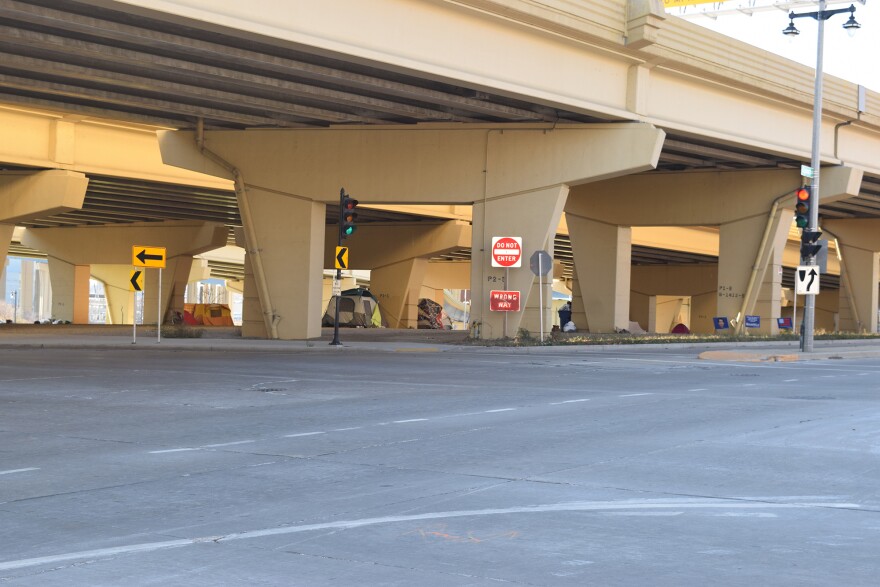For several years, Milwaukee County has been working to end chronic homelessness through permanent housing for people.
Since those efforts were put into place, county officials say the number of chronic homeless people has decreased by 45 percent. However, driving through downtown Milwaukee, it’s hard not to notice the tent encampments that have popped up.
Earlier this week, the low temperatures dipped into the teens. When it gets this cold, most of us can’t imagine not having a warm home to take refuge. But there are people who don’t, and they were largely invisible in Milwaukee until recently - that is until a local homeless outreach organization began handing out tents. Homeless people now live in them, in encampments like the one at 6th and Clybourn streets in downtown Milwaukee.
"Here we are in Milwaukee, Wisconsin and its 20 degrees outside and people are sleeping in tents provided to them by charity when the government has failed them,” says Sherri Tussler, executive director of the Hunger Task Force.

Tussler says this homelessness was caused, in part, by failed welfare reform efforts of the government that Governor Scott Walker leads.
“It has failed to get them jobs, it has failed to get them drug treatment, it has failed to get them housing,” she says.
Tussler notes there are now probably twice as many homeless people in Milwaukee as there are beds.
According to notes from a Department of Transportation meeting that took place early last month, there are now between nine and 11 tent encampments across Milwaukee.
Shelly Sarasin is co-director of a homeless outreach organization called Street Angels. It hands out food, sleeping bags and other items people might need. She says her organization has noticed an increase in the homeless population in downtown Milwaukee.
“I would say that in the middle of July, we went from seeing three people at one encampment and the very next day we were out it grew to over 20,” Sarasin recalls.
Street Angels has not been able to pinpoint why the homeless population downtown is growing, but Sarasin says it’s having an impact on the reach of her organization.

“We’re visiting 24 different encampments, but they’re solely focused on the south side and downtown. We haven’t been able to make it to the east side of Milwaukee, haven’t been able to make it to the north. And unfortunately, our suburban of west Milwaukee, West Allis has had to be cut as a result of that.” Sarasin explains.
James Mathy is housing administrator for the Milwaukee County Housing Division. He says it’s important to note that people staying on the streets or in shelters fall into different categories. There are those who are chronically homeless, meaning a person has been continuously homeless for a year, or someone who has had at least four episodes of homelessness over a three-year period. And then there are people who are considered homeless, but not chronic.
Chronic homelessness is drastically down in Milwaukee County according to Mathy, but he says he won’t know until the annual January count if the overall number of homeless people is ticking up. Still, he says his office has also noticed the increase in tent camps. While people might think they’re doing a good deed by handing out the tents, there are unintended consequences, says Mathy.
“It has slowed the process of housing down a little bit," he notes. "We have had folks delay the housing process a little bit because of the tents and all the services that are offered to them on the street."
Mathy says the county is doing all it can with the funding it has, and adds that it’s now time for the business and nonprofit community to step up and help like in other cities.




